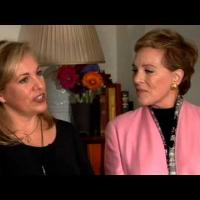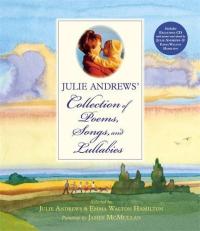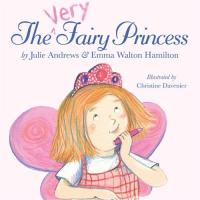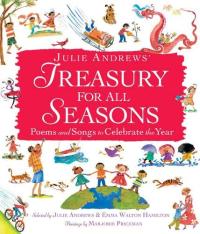
Biography
Excerpted from The Julie Andrews Collection website.
Julie Andrews is one of the most recognized and beloved figures in the entertainment industry. Her legendary career encompasses the Broadway and London stages, blockbuster Hollywood films, award-winning television shows, multiple album releases and concert tours and the world of children’s publishing.
A child star of the British vaudeville circuit, Ms. Andrews came to America at the age of 19 to star in The Boyfriend on Broadway. She subsequently received critical acclaim for her legendary stage performances in My Fair Lady, Camelot, and Victor/Victoria. Her many memorable film performances include Mary Poppins (which won her an Oscar for her very first motion picture appearance), The Sound of Music (the highest grossing film of all time), Thoroughly Modern Millie, 10, Victor/Victoria and more recently The Princess Diaries and Shrek films. She is equally well-represented on television — her weekly variety series “The Julie Andrews Hour” won multiple Emmy Awards during its run in the 1970’s. Other notable small-screen appearances include the televised version of Rodgers and Hammerstein’s Cinderella, several award-winning variety and live theatre specials.
Andrews’ dedication to children has been steadfast throughout her career. She began writing books for young readers over thirty-five years ago and her first two novels — Mandy and The Last of the Really Great Whangdoodles — remain in print and in high demand. Her other books include the Little Bo series, and an additional 15 picture books, novels and Early Readers co-authored with her daughter, Emma Walton Hamilton, including the best-selling Dumpy the Dump Truck series, The Great American Mousical, and the new Julie Andrews’ Collection of Poems, Songs, and Lullabies. Together the best-selling mother-daughter team head-up The Julie Andrews Collection imprint at HarperCollins Publishers.
Andrews’ considerable charitable work has been consistent throughout her career, and in 2000 the title of Dame Julie Andrews was bestowed upon her by Queen Elizabeth II for lifetime achievements in the arts and humanities. Her many other honors include being named “One of the 100 Greatest Britons” by the British Broadcasting Corporation, serving as Goodwill Ambassador for the United Nations Development Fund for Women (UNIFEM), a Lifetime Achievement Award from the British Academy of Film and Television Arts and a prestigious Kennedy Center honor in the fall of 2001. She is married to film director Blake Edwards and they have five children, seven grandchildren, and two great-grandchildren.
Find this author’s books on these booklists
Themed Booklist
Holiday Buying Guide 2009
Themed Booklist
Our Favorite Audiobooks
Themed Booklist






